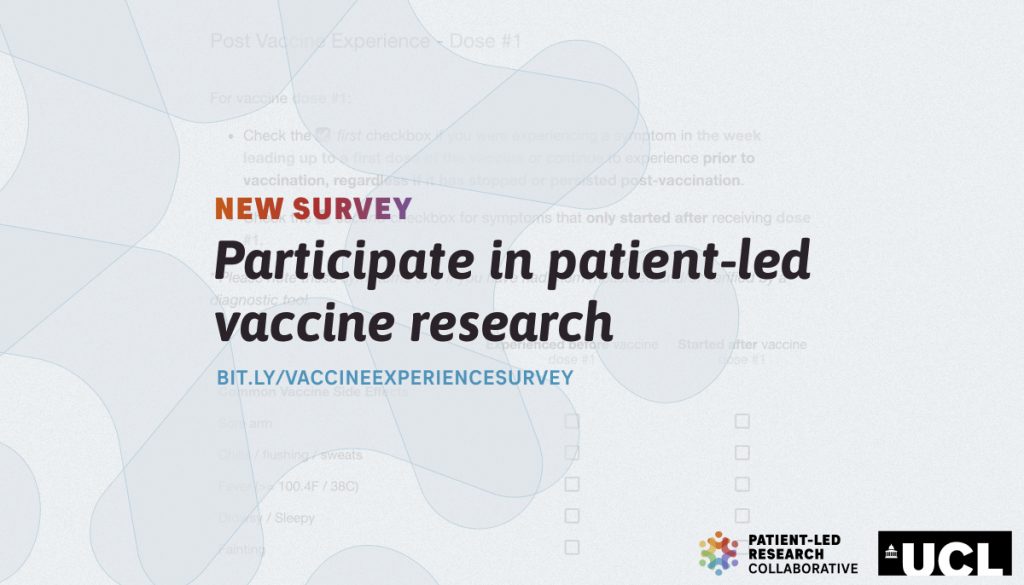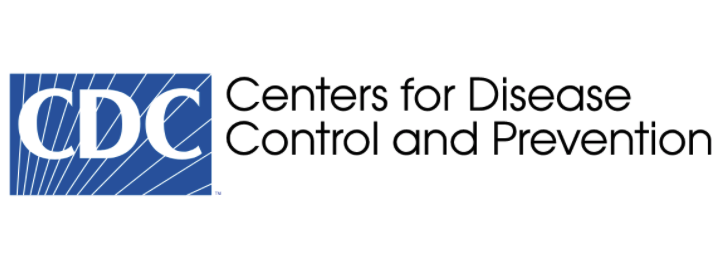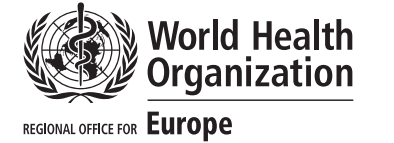👋🏼 Hello! You are receiving this email because you signed up to monthly updates from the Patient-Led Research team. If you have been forwarded this email and would like to get your own copy, subscribe here.

Help empower the Long COVID community and provide input to important research topics by taking our new vaccine survey! We encourage people over 18 years old who have received at least one dose of a COVID-19 vaccine 7 days ago or longer to participate, regardless of if they had COVID or Long COVID. The survey takes around 10-30 minutes to complete.
Community-Driven Research
We believe patient participation in all stages of research. Thanks to over 350 questions submitted in our last newsletter, as well as input from the patient community at Body Politic Slack, our team identified several areas of investigation. We hope data collected from this study will help uncover insights to some pressing questions the Long COVID community have asked about vaccination.
We also applaud the timely research efforts from fellow patient-researchers and clinical teams investigating the impact of vaccines on Long COVID. Our favourites are science journalist Gez Medinger’s early survey findings summarized on Youtube and Dr. Iwasaki’s theories on how vaccination might interact with Long COVID symptoms
Share our Survey
So far, 500+ people have participated in our vaccine study. The more survey submissions we gather, the sooner we can share a report. Help us by sharing this short study bit.ly/vaccineexperiencesurvey with those who have been vaccinated. In particular, we would like more participants who have:
- No Long COVID symptoms
- Received their final dose of the vaccine
Do you have access to folks who have gotten COVID and/or run a patient community? Shoot us a note when you share our survey so that we can thank you in our upcoming report. 😉
PLRC Citations
To date, our research work at the collaborative has been cited in over 70 scientific publications, informing guidelines for Long COVID care, treatment, and further research. We are proud to share some recent progress below. For a full list, see select citations on our website.

Post-COVID Conditions: Information for Healthcare Providers
The CDC includes post-exertional malaise in a list of Post-COVID symptoms, and acknowledges health effects persisting after mild or asymptomatic SARS-CoV-2 infection.

In the wake of the pandemic Preparing for Long COVID
A detailed policy brief outlining existing research and three new ICD-10 codes for use with Long COVID (page 19), including a link to probable COVID-19 infection and multisystem inflammatory syndrome.

Living with COVID-19
Second review
A dynamic review of the evidence around Long COVID, with recommendation that “people living with Long Covid (who are experts by experience) should be equal partners in setting the research agenda“.

Toward Understanding COVID-19 Recovery: National Institutes of Health Workshop on Postacute COVID-19
PLRC presented at this workshop to help the NIH identify knowledge gaps. The workshop highlighted the “need for prospective studies to include those who lack access to care“.
One Year of Patient-Led Research
On April 17th, the leadership team celebrated our one year anniversary at PLRC! We are thankful for finding each other during a time of need and growing into an extraordinary team that accomplished so much despite being sick. Here’s a Twitter thread that unpacks the many milestones in our journey.
Thank you everyone who supported us, taken our surveys, connected us to researchers, and made us better patient advocates, scientists and leaders. We have a lot of exciting news and collaborations to share in the coming months. In the meantime, we invite you to watch this space!
Warmly,
Hannah Wei from the Patient-Led Research Collaborative

PS. This email is part of a monthly newsletter that we send out to more than 10,000 readers. If you liked this issue, we encourage you to share it with your colleagues and loved ones.
